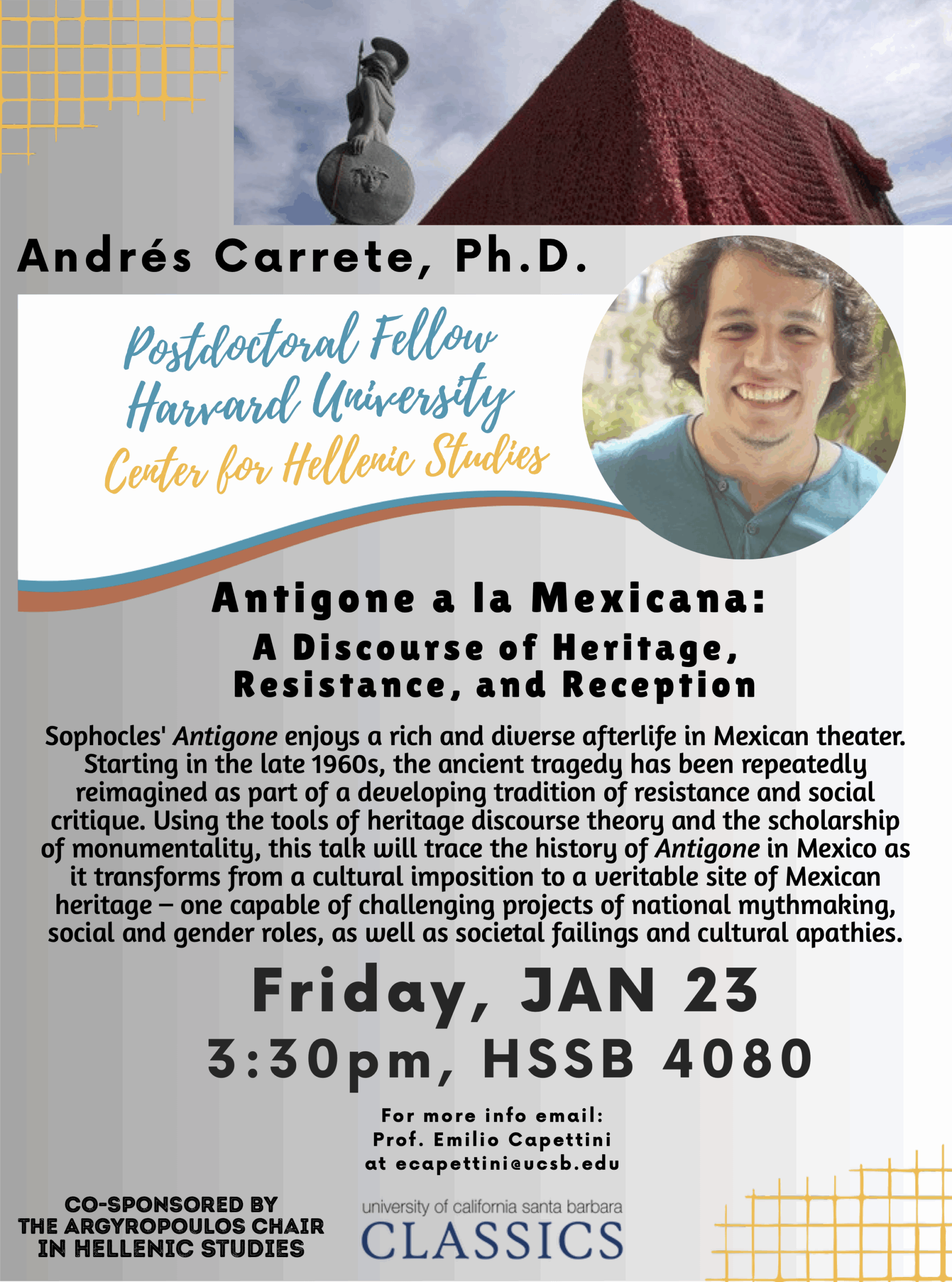Sophocles’ Antigone enjoys a rich and diverse afterlife in Mexican theater. Starting in the late 1960s, the ancient tragedy has been repeatedly reimagined as part of a developing tradition of resistance and social critique. Despite the political boldness and precision of most modern Mexican Antigones, the ancient play did not always possess the discursive power to intervene and criticize that has defined the play for contemporary Latin American audiences. It is through the efforts of its receiving communities that Mexico’s Antigones develop into culturally specific interventions to their country’s dominant narratives. Using the tools of heritage discourse theory and the scholarship of monumentality, this talk will trace the history of Antigone in Mexico as it transforms from a cultural imposition to a veritable site of Mexican heritage – one capable of challenging projects of national mythmaking, social and gender roles, as well as societal failings and cultural apathies.

This workshop introduces academic career pathways in Greece and Europe, with a particular focus on funding opportunities and strategies for building sustainable international collaborations. Drawing on concrete examples from the European research landscape, the session will discuss major funding frameworks such as Horizon Europe, Marie Skłodowska-Curie Actions (MSCA), ERASMUS, as well as bilateral schemes supported by the Hellenic Foundation for Research and Innovation (Greek acronym: ELIDEK). The session offers practical guidance on identifying funding calls, building international research teams, and developing long-term collaborations, and is aimed at undergraduate and graduate students considering international research experience or academic careers beyond the United States.
This lecture presents research undertaken at the TALOS Lab (University of Crete), a European-funded research center dedicated to exploring how Artificial Intelligence can support research in the Humanities and the Social Sciences. It demonstrates how digital tools and workflows, when designed, steered, and evaluated by domain experts, can enrich established scholarly practices. Through examples of semantic annotation, knowledge graph modelling, and natural language processing, the lecture shows how computational methods clarify the interrelation of concepts, persons, places, and events, make historical arguments and source relationships explicit and traceable, and enable the exploration of large corpora in ways that invite further close reading and philological analysis. At every stage, human expertise shapes the research questions, defines the analytical categories, guides model design, curates the data, interprets results, and validates outputs. Within TALOS, expert-guided AI is framed not as a rupture with disciplinary traditions, but as a methodological evolution within Classical scholarship. AI is embedded in collaborative research and teaching that cultivates essential 21st century skills – data modeling, AI fluency, and teamwork – preparing the next generation of researchers and scholars.






